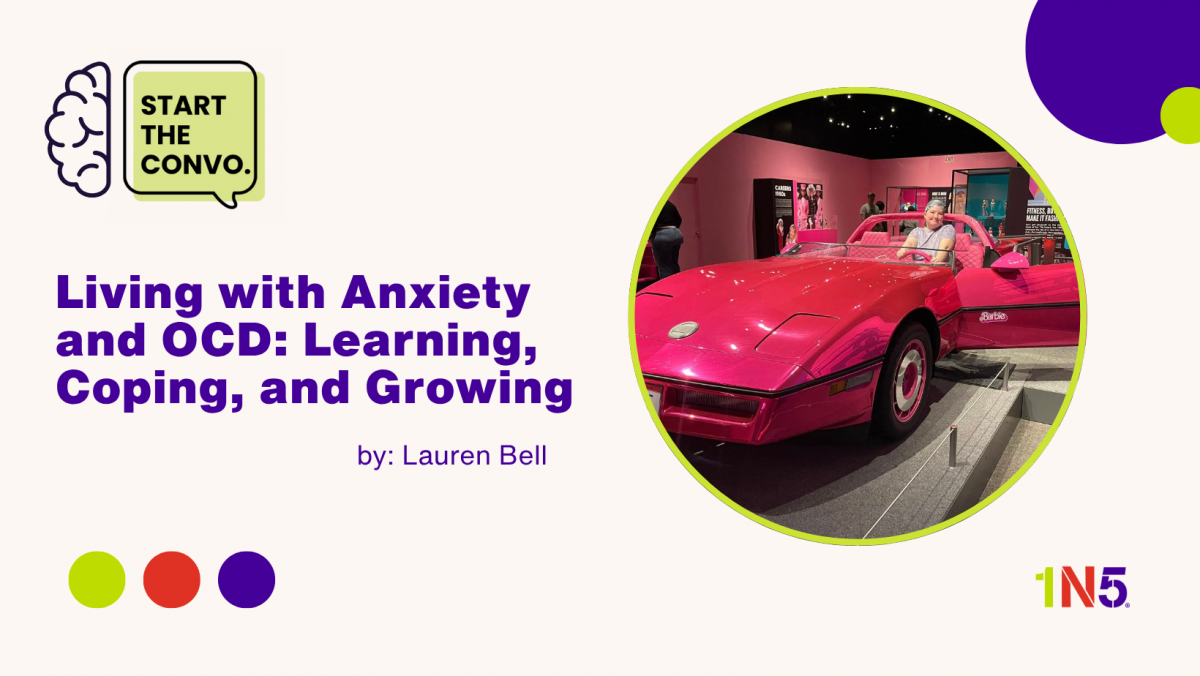I’ve lived with an anxiety disorder for most of my life. But about a year and a half ago, everything
started to change in ways I didn’t understand. My anxiety became more intense, and it began to
affect every aspect of my daily life. I was barely holding it together, and I didn’t know why.
Eventually, I was diagnosed with Obsessive Compulsive Disorder (OCD), specifically,
contamination OCD. Before my diagnosis, I didn’t even realize there were different types of
OCD, let alone that the symptoms I was experiencing were connected to it. My days became
consumed by overwhelming fears, intrusive thinking patterns, and rituals, and I started having
frequent panic attacks, sometimes multiple times a week, even at night. I was losing so much
sleep, I was mentally and physically exhausted, and so were the loved ones supporting me. It
felt like I was spiraling, and I couldn’t figure out how to stop it.
The turning point came when I realized I needed specialized help from someone who truly
understood anxiety and OCD. That’s when I found my team at the Lindner Center of HOPE and
began a new path in therapy, specifically Exposure and Response Prevention (ERP) therapy.
For the first time, I started to understand my condition. I began to do research, read a therapy
workbook, and I was able to learn that I wasn’t alone and that I wasn’t doomed to live in a
downward spiral forever.
One of the most important lessons I learned was that I had been coping in negative ways for a
long time—bottling up my emotions, afraid of being judged or misunderstood, staying silent, and
trying to handle everything by myself instead of saying I need help.
Through therapy, I discovered a new way of thinking: You do the best you can with the
information you have at any given moment. That idea stuck with me, mainly because I had
read a blog on 1N5 that echoed the same message. It reminded me to be kinder to myself and
to keep learning.
In therapy, I learned to build what my care team calls a Mental Health Toolkit. I like to imagine it
as an invisible tool belt, like the kind construction workers wear, except mine holds coping skills
instead of power tools. I’ve filled it with grounding techniques, breathing exercises, journaling
prompts, and more. I also rediscovered my passions and hobbies, including a new one: video
gaming and modding. I even started approaching my OCD like a game, adding “mods” and
tweaks as I learned more and built new coping mechanisms.
Finding the right support took time—the right team, the right therapy, the right medication—but it
was worth it. And through this process, I’ve found strength in speaking out and being more open
about OCD. It’s not always easy, but I’ve learned that vulnerability can be empowering.
To anyone reading this who might be struggling with anxiety, OCD, or any mental health
challenge, I want you to know:
You’re not alone. You don’t have to bottle it up. It’s okay to say, “I don’t understand
what’s going on.” It’s okay to say, “I need help.” It’s okay to not be okay.
Healing is not linear, but the more you learn about your condition, the easier it becomes to
understand what’s happening inside your mind and body. The journey might be hard, but you
can find light through the fog.

